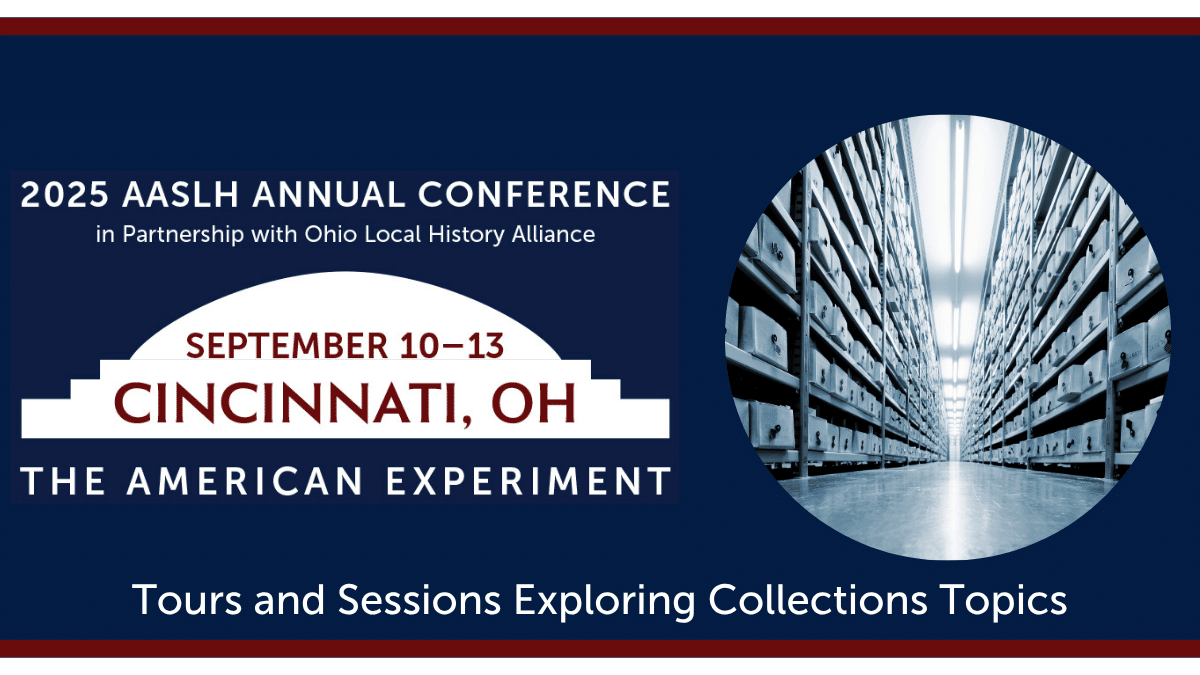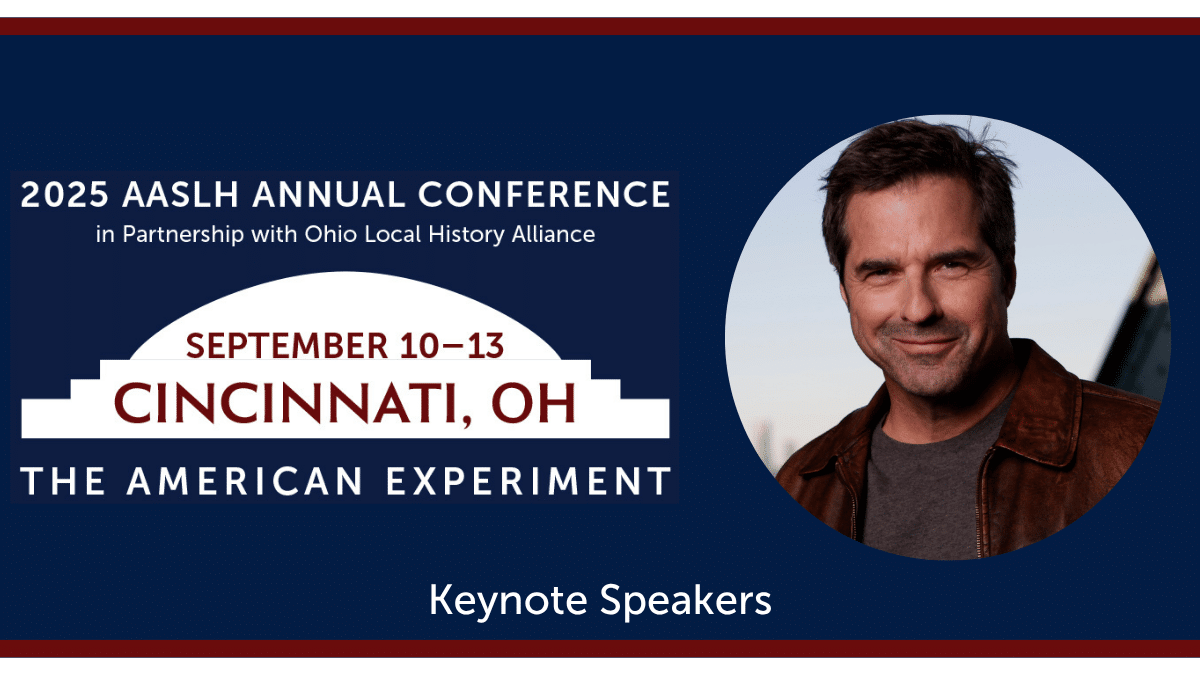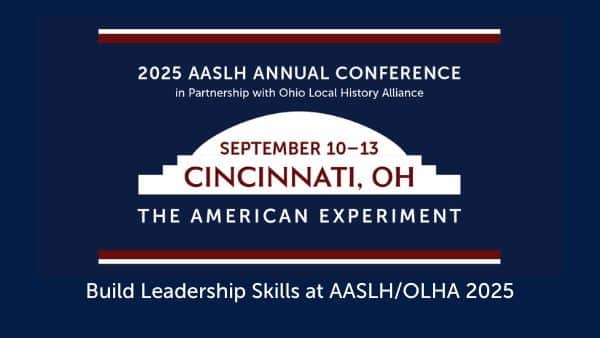 Did you ever have to write the typical “What I Did on Summer Vacation” essay on the first day of school? It seems like it was a rite of passage to talk about vacations, camps, and exciting days as you started back to school. Since we are at the beginning of summer, I wondered about the things we as history professionals could do on our summer vacations to help our organizations and ourselves.
Did you ever have to write the typical “What I Did on Summer Vacation” essay on the first day of school? It seems like it was a rite of passage to talk about vacations, camps, and exciting days as you started back to school. Since we are at the beginning of summer, I wondered about the things we as history professionals could do on our summer vacations to help our organizations and ourselves.
Here are four things I encourage you to do this summer to help you think about your work in a fresh way:
1. Actually take a vacation. Many history professionals who work in small museums have a hard time actually taking time off due to the unique demands of an organization where they may be the only paid staff person. It is easy to get in the mindset that the organization will not survive if you are not there to run it. This is not healthy for you as a person and a professional and leads to burn-out. We all need some time away from work to rest and recharge. You don’t have to go far from home, but at least schedule a Netflix or pool day (or two) to unplug from the daily grind and recharge your spirit so that you can be more effective in your job.
2. Do something that inspires you that is not history related. This may sound like blasphemy for history lovers, but we work in history every day. While we are great audiences for history museums on vacation (my kids will attest to the fact that we always visit at least one history museum or historic site no matter where we go), they can give us tunnel vision. Think about what else inspires you. Maybe it is art, nature, great food, or great conversation. Carve out time for that this summer. I have discovered that art museums are a great source of inspiration for me. I can enjoy the pleasure of a museum visit without getting hung up on the details that I deal with on a regular basis in my job. I can simply experience the beauty of the art and maybe take away some techniques from the art museum world that I can use when I get back home.
 Columbus Museum of Art in Columbus, Ohio3. Look for lessons in unlikely places. Even though we are on vacation, we are always thinking about work in some capacity. I think that is unique to the nonprofit world because we do our work because we love it. So as you are out and about on vacation or weekend outings this summer, pay attention to lessons you can take back to your history institution from unlikely places. One great way to get tips (or learn from bad experiences) while traveling is to think about the visitor journey map. As Max van Balgooy of Engaging Places, LLC writes on his blog, a journey map is “a diagram that lays out every step in the visitor experience from home to historic site to back home.” Theme parks, in particular, are a great way to think about the journey map. Pay attention to your full experience from website research to purchasing tickets to finding the parking lot and entrance, to entering the park. How does the journey to get to your destination affect your experience? Then, after you get back to work, apply the lessons learned to your organization because the visitor experience does not start with the tour or gallery visit.
Columbus Museum of Art in Columbus, Ohio3. Look for lessons in unlikely places. Even though we are on vacation, we are always thinking about work in some capacity. I think that is unique to the nonprofit world because we do our work because we love it. So as you are out and about on vacation or weekend outings this summer, pay attention to lessons you can take back to your history institution from unlikely places. One great way to get tips (or learn from bad experiences) while traveling is to think about the visitor journey map. As Max van Balgooy of Engaging Places, LLC writes on his blog, a journey map is “a diagram that lays out every step in the visitor experience from home to historic site to back home.” Theme parks, in particular, are a great way to think about the journey map. Pay attention to your full experience from website research to purchasing tickets to finding the parking lot and entrance, to entering the park. How does the journey to get to your destination affect your experience? Then, after you get back to work, apply the lessons learned to your organization because the visitor experience does not start with the tour or gallery visit.

Bethany and her daughter at the Margaret Mitchell House in Atlanta, Georgia
4. Be a “secret shopper.”
This topic came up on a conference call with AASLH’s Creative and Experimental Task Force last week and I am going to borrow it for this blog. If you are traveling and visiting historic sites and museums is on your itinerary, consider providing a service for your colleagues by being a secret shopper. Reach out to someone on staff and offer to evaluate their visitor experience. If you don’t know someone at the museum, check out the staff page on their website and email them. We all know that it is impossible to evaluate our own sites and tours. A colleague might welcome the opportunity to have another history professional provide constructive feedback about their visitor experience. It also might give you the opportunity to grow your professional network.
So, as we head into the heart of the summer season, I encourage you to take advantage of the longer days and pleasant weather to find ways to relax, recharge, and be inspired.
Want to write for AASLH? Learn more and submit a blog post here.



